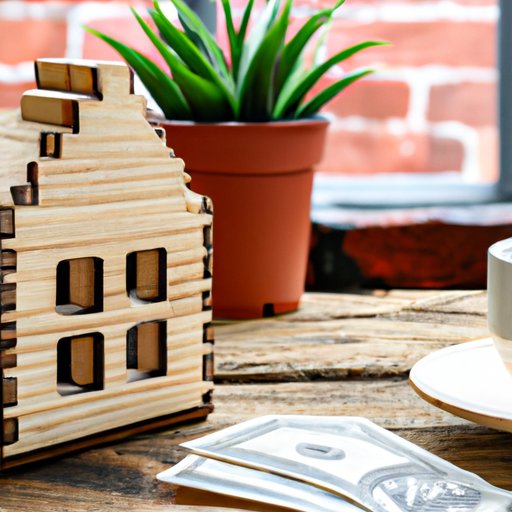Introduction
The idea of owning a home is exciting and fulfilling, but for many, the biggest hurdle is figuring out how much house they can afford. While it’s tempting to go for a big, dreamy house, it’s crucial to set a realistic budget to avoid long-term financial strain. In this article, we’ll provide you with a comprehensive guide to determining your homebuying budget, complete with insider tips and creative strategies.
The Importance of Setting a Realistic Budget
Before you start touring houses or applying for mortgages, it’s important to set a realistic budget. By doing so, you can avoid financial trouble down the line, such as defaulting on your mortgage or being unable to pay the bills.
When determining your budget, consider your income, expenses, and debt. Remember that your housing expenses should not exceed 28% of your gross income, and your overall debt payments should not exceed 36% of your gross income (the 28/36 rule). It’s also important to factor in other expenses, such as property taxes, insurance, and maintenance costs.
Crunching the Numbers: A Step-by-Step Guide to Calculating Your Homebuying Budget
To calculate your homebuying budget, start by looking at your income and expenses. Determine your monthly gross income (before taxes) and subtract your monthly expenses, such as rent, car payments, and credit card payments. The remaining amount will give you a rough estimate of how much you can afford to spend on housing each month.
Next, apply the 28/36 rule to get a more accurate budget. Multiply your gross monthly income by 0.28 to determine your maximum monthly housing payment and multiply by 0.36 to determine your maximum total debt payments. Subtract your current debt payments from this total to determine your maximum housing payment.
For example, if your monthly gross income is $5,000 and your monthly expenses total $2,000, your rough estimate for housing expenses is $3,000. Using the 28/36 rule, your maximum monthly housing payment would be $1,400 ($5,000 x 0.28) and your maximum total debt payments would be $1,800 ($5,000 x 0.36). Subtracting your current debt payments of $500 would give you a maximum housing payment of $1,300.
Insider Tips for Determining Your Homebuying Budget: What Lenders Don’t Tell You
Lenders often encourage buyers to spend more than they can afford, so it’s important to be aware of their tactics. For example, they may offer pre-approval for a higher loan amount, knowing that you’ll have to stretch your finances to make the payments.
To avoid falling into these traps, it’s important to be honest with yourself about what you can comfortably afford. Consider whether you want to make any major lifestyle changes, such as cutting back on expenses or increasing your income, to afford the house you want.
Overcoming Budget Barriers: Creative Strategies for Affording the Home of Your Dreams
If you’re struggling to afford the house you want, there are several creative strategies you can try. Consider looking for a fixer-upper that you can renovate over time to save on costs. You can also consider a different location, such as a suburban area or a smaller town, where housing prices are more affordable.
Alternative Paths to Homeownership: Maximizing Your Financial Resources to Achieve Your Goal
If you’re unable to afford a house on your own, there are alternative paths to homeownership. Co-buying with friends or family can help you split the costs and increase your buying power. You can also consider a lease-to-own model, where you rent the property with an option to buy at a later time.
To maximize your financial resources, consider saving for a larger down payment or increasing your credit score, which can lead to better loan terms and lower interest rates.
The Hidden Costs of Homeownership: Shedding Light on the Expenses That First-Time Buyers Often Overlook
Many first-time homebuyers overlook several expenses when determining their budget. Closing costs, home inspections, and maintenance fees can add up quickly and lead to unexpected expenses down the line.
When budgeting for these expenses, consider setting aside 2-5% of the purchase price for closing costs, and factor in annual maintenance costs of 1-4% of the home’s value. It’s also important to get a home inspection to identify any potential issues and budget accordingly.
Conclusion
Setting a realistic budget is a crucial step in the homebuying process. By considering your income, expenses, and debt, you can determine how much house you can truly afford and avoid financial troubles in the long run. Remember to be honest with yourself about what you can manage financially and consider creative strategies and alternative paths to homeownership if necessary.
(Note: Is this article not meeting your expectations? Do you have knowledge or insights to share? Unlock new opportunities and expand your reach by joining our authors team. Click Registration to join us and share your expertise with our readers.)
